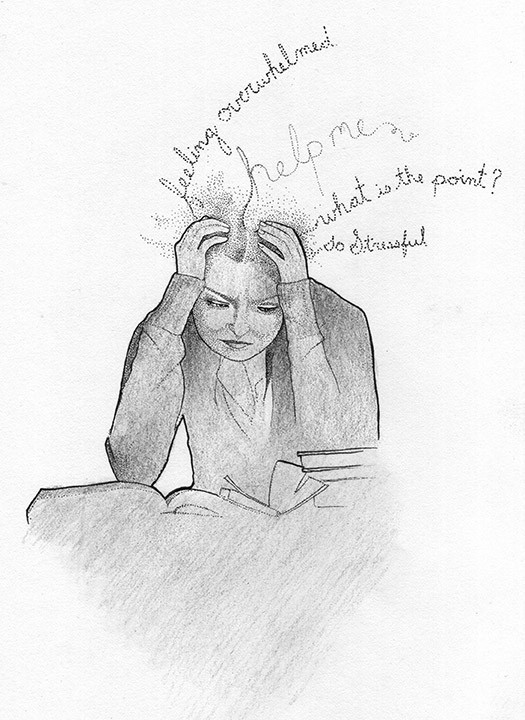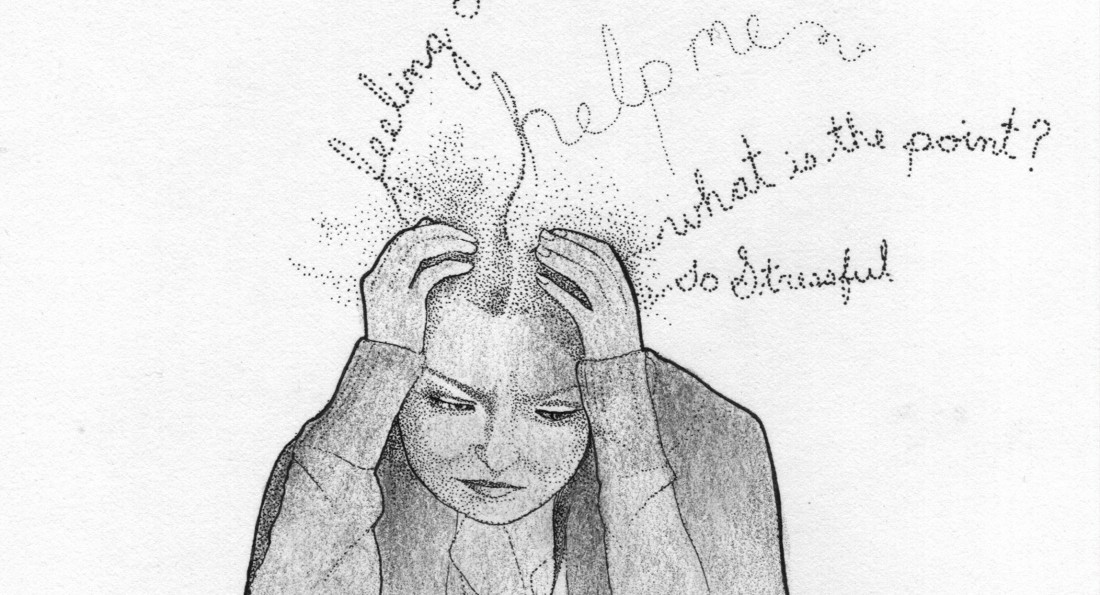Meditation could calm your brain
U of W offers mindfulness meditation sessions for students

If you go into the the University of Winnipeg (U of W) Bryce Hall Chapel at 12:30 p.m. on Monday, you will find 10 people sitting in silence in a circle around three LED candle lights. They aren’t praying. They’re meditating. And they might help you feel better about an upcoming test.
Barb Read has run a mindfulness meditation session every Monday for years now. Students, teachers and community members can come to campus and take a little time out of their days to relax.
“I was inspired in the summer of 2013. I went to Brock University. They had a mindfulness for educators (class),” Read says. “From that, I thought, one of the things we were asked was ‘how are you going to bring it forward? What are you going to do with this?’ And I said I was going to bring it to the university.”
Mindfulness meditation is a technique that originates from Buddhism, though now it is more secular in nature. Most of its practices originated from a stress relief program created in the ’70s, and since then, many psychologists have adopted it as a way to combat mental health issues such as depression and anxiety.
Read thinks there are plenty of benefits for students, as stressing out over an upcoming assignment can often work against you.
“If you’re so scared or so upset or stressed out about [a] test, your brain is not going to work well anyway. So if you could actually be in the moment for whatever it takes, watch your breath for five seconds even, then you can relax, and ... your thoughts flow better,” Read says.
Increased stress can activate your body’s fight-or-flight response, where your body think it’s in danger and puts all of its energy into either removing or escaping from that danger. Constant stress might lead to long-lasting changes in your brain, which could lead to mental health issues like PTSD or anxiety.
Michael McIntyre, a U of W psychology professor, says while your brain is at risk when you’re stressed, you can also learn how to strengthen it through mindfulness meditation.
“There are things we can do to the organ through which we experience our entire lives. We can change our brain in ways that make us healthier,” McIntyre says. “You take two groups, a mindfulness group and a control group … mindfulness has been empirically shown to contribute to physical health.”
The mindfulness meditation sessions take place on Mondays at 12:30 p.m. in the Bryce Hall Chapel. The sessions are free and available to anyone who wants to come.
Published in Volume 71, Number 9 of The Uniter (November 3, 2016)







